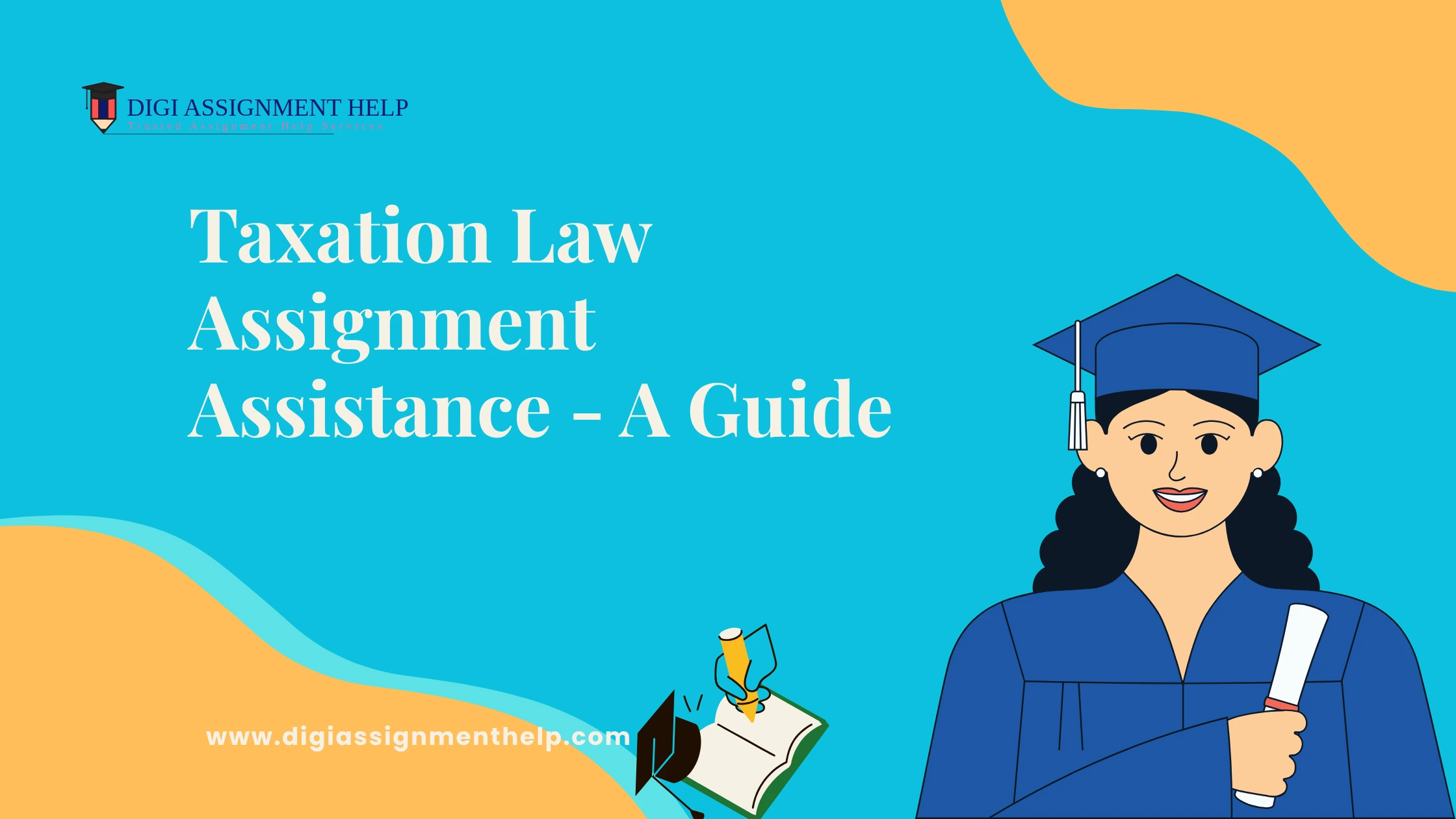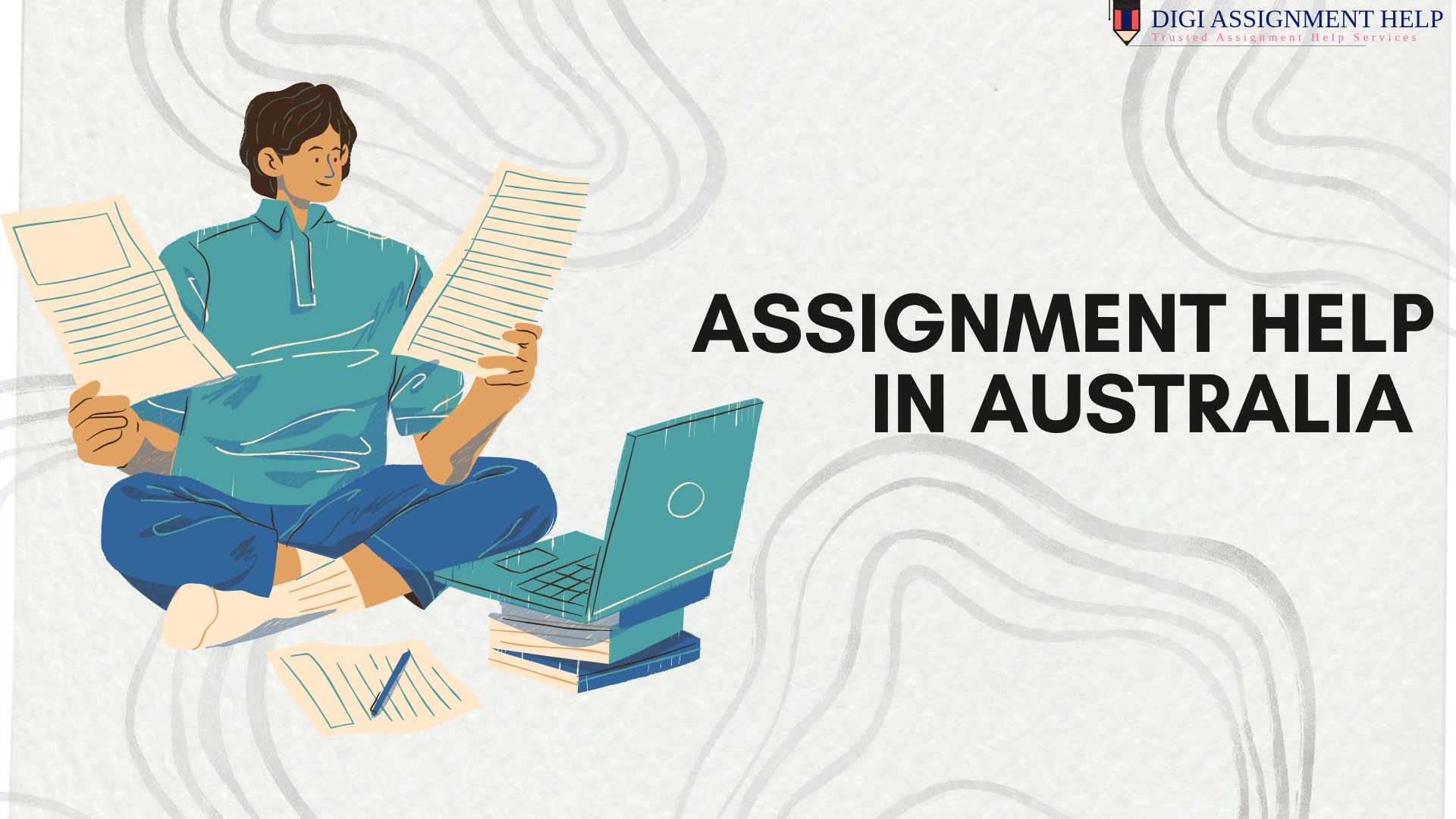Taxation Law Assignment Assistance Guide
 14-May-2025 09:09 AM
14-May-2025 09:09 AM

Taxation Law is the crossroads of business, commerce, and law studies in Australia. It is the cornerstone of financial decision-making for governments, corporations, and individuals, so it is a central course for commerce and law degrees. But its very nature creates increasing demand for study assistance. Students experience complicated legislation, updated policies, and complex calculations as they struggle through the taxation law in Australia.
This guide gives you a comprehensive overview of the taxation climate in Australia, assignment types you'll encounter, pitfalls to avoid, and successful techniques to conquer. Whether you are composing a case study, responding to a problem question, or programming GST calculations, this comprehensive guide equips you with the information and tools to produce high-quality work through Australian assignment help.
Overview of Taxation Law in Australia
The taxation system of Australia is founded on four broad categories: income tax, goods and services tax (GST), capital gains tax (CGT), and fringe benefits tax (FBT). Income tax is imposed on individuals and entities according to the Income Tax Assessment Act 1997, which sets the provisions for the assessment of taxable income and offsets.
The GST Act imposes a 10% consumption tax on most goods and services, except those with exemptions and input-tax credits specified on the ATO website. CGT governs profit on disposals of assets, and FBT taxes the non-monetary benefits employers provide to employees.
The Australian Taxation Office (ATO) administers these laws, makes rulings, and secures compliance as the major revenue agency of the government for which the taxation assignment help organizations are responsible in preparing an assignment.
Common Types of Taxation Law Assignments
You are likely to be offered various key assignment forms beginning with case study help:
-
Case Studies: You compute tax legislation in the context of actual or hypothetical cases, determining liability and outcomes in terms of ATO rulings.
-
Research Essays: You conduct intense examination of legal principles, policy change, or international taxation, including intense literature research.
-
Calculation Tasks: You calculate amounts due or payable amounts, testing your knowledge of formulae, ceilings, and percentages.
-
Problem Questions: You are employing the IRAC law (Issue, Rule, Application, Conclusion) form of legal analysis with clear reasoning and statutory interpretation.
Key Challenges Faced by Students
Dealing with sophisticated legislation and amendments
Taxation law challenges are on the rise with annual budgets and ATO determinations. Keeping current with changes to the Income Tax Assessment Act 1997 and GST Act demands alertness.
Difficulty comprehending exemptions and deductions
ATO rules regarding deductible costs and tax offsets are usually intricate. Misconceptions of such rules usually lead to errors in calculations.
Implementation of theory into real case laws
Closing the gap between theoretical legal principles and real cases should be accomplished using stringent analysis, which is one of the primary challenges in tax law assignment. Students usually find it difficult to substantiate their conclusions using statutory proof.
Referencing problems in legal writing (APA vs AGLC)
-
Australian citation law demands AGLC (Australian Guide to Legal Citation). Confusing APA and AGLC styles can result in failure.
-
Time-consuming calculations with no margin for error
-
Tax hand calculation is time-consuming. A wrong application of rates or rounding can waste your entire response.
Tips to Write a Scoring Taxation Law Assignment
-
Understand the Assessment Task
-
Carefully read your unit outline. Note word limits, presentation, and marking criteria.
-
Use the IRAC Method
-
Format your responses: identify the Issue, cite the appropriate Rule (statute or case law), give a clear Application to facts, and arrive at a sound Conclusion.
-
Quote Legal Sources Properly : Use AGLC4 for cases, statutes, and secondary sources. Footnote pinpoint citations and prepare a Table of Legislation and Table of Cases.
-
Stay Current with Tax Law Developments :Check ATO public rulings and legislative releases on a regular basis. Look up the ATO's legal database for binding rulings.
-
Proofread & Format Professionally :Utilize standard headings, numbering, and indentation. Utilize formal fonts (e.g., Times New Roman 12pt) and put page numbers on them. Properly presented layout enhances readability for law assignment.
Tools & Resources to Make Assignments Easier
• ATO Website & Legislation Portal: Official source of Acts, public rulings, and explanatory guides.
• Tax Calculators (on ATO websites): Utilize the ATO's Simple Tax Calculator and Tax Withheld Calculator for rapid calculations.
• Legal Databases: AustLII offers free access to legislation, cases, and ATO rulings. LexisNexis provides sophisticated search and commentary (subscription may be required).
• University Library Guides: Several law schools release AGLC referencing guides and sample assignments to hone your skills.
Final Thoughts
Taxation Law poses a challenge of scope and depth to every learner. However, learning about legislative updates, sharpening legal minds, and accessing best resources improves skills that you will use for a lifetime. Remember, seeking help—whether it is through study groups or professional assignment help—can lighten your load and improve your grades.
Stay curious, stay organized, and do not shy away from availing expert help when you need to stay ahead. In addition, remember that completing Taxation Law assignments is not a box-ticking exercise. It is an opportunity to develop your analytical skills and increase your confidence in dealing with complex issues of law.
Use every assignment as a chance to refine your research skills and familiarize yourself with actual tax cases. Once you learn to decode legislations, you will also have the opportunity to understand deep insights into the impacts of policies and business choices. But in case you do not want to handle all of these, Digi assignment help is waiting for you.
Do not underestimate the power of collaboration. Form study groups or discussion forums with classmates and discuss difficult topics and exchange information. Sharing ideas with others can consolidate your own understanding. And when tension is at its peak, take a brief timeout—clear minds fix problems faster. Last but not least, define small milestones.
Divide your task into day-by-day objectives: outline on Monday, Tuesday case analysis, Wednesday citations, and the like. Small victories cumulate. With consistent effort, expert guidance, and the university law assignments help by your side, you’ll not only score top marks but also build skills that last a lifetime.



























